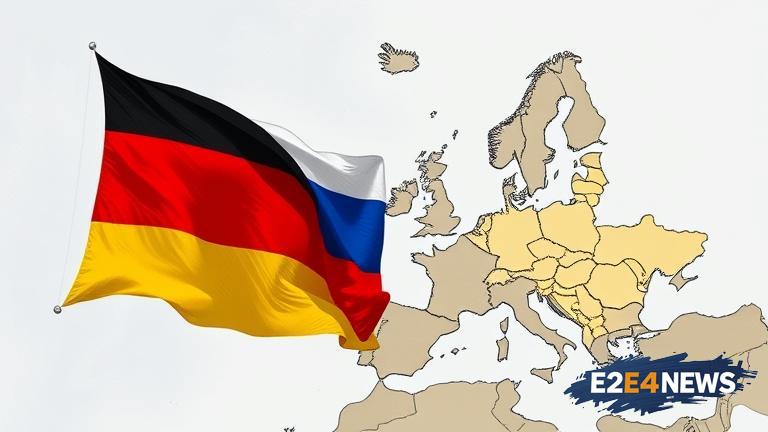In a move that highlights the divisions within the European Union, Germany and Belgium have expressed their opposition to seizing Russian assets. The two countries have cited legal concerns and potential repercussions on their economies as the primary reasons for their stance. The proposal to seize Russian assets was put forth by the European Commission, with the aim of using the frozen funds to support Ukraine’s reconstruction efforts. However, Germany and Belgium have argued that such a move would be illegal and could potentially harm their own economies. The German government has stated that it is committed to supporting Ukraine, but believes that seizing Russian assets is not the right approach. Belgium, on the other hand, has expressed concerns about the potential consequences of such a move on its own financial sector. The European Commission has proposed using the frozen assets to support Ukraine’s reconstruction efforts, but Germany and Belgium are not alone in their opposition. Other EU member states, such as Austria and Hungary, have also expressed reservations about the proposal. The debate over seizing Russian assets has highlighted the divisions within the EU, with some member states prioritizing the need to support Ukraine over concerns about the potential consequences of such a move. The European Commission has argued that seizing Russian assets is necessary to support Ukraine’s reconstruction efforts, but Germany and Belgium believe that there are other ways to achieve this goal. The two countries have proposed alternative solutions, such as providing financial support to Ukraine through other means. The opposition from Germany and Belgium has put the proposal to seize Russian assets in jeopardy, with some EU officials expressing doubts about whether the plan can move forward. The European Union has imposed significant sanctions on Russia in response to its invasion of Ukraine, but seizing Russian assets is a more drastic step. The EU has frozen billions of dollars’ worth of Russian assets, but using these funds to support Ukraine’s reconstruction efforts is a complex issue. The legal implications of seizing Russian assets are still unclear, and Germany and Belgium are not willing to take the risk. The two countries believe that seizing Russian assets could set a dangerous precedent and potentially harm their own economies. The European Commission will need to find alternative solutions to support Ukraine’s reconstruction efforts, as the proposal to seize Russian assets is unlikely to move forward. The debate over seizing Russian assets has highlighted the challenges facing the EU in its efforts to support Ukraine. The EU has provided significant financial support to Ukraine, but the country still faces significant challenges in its reconstruction efforts. The European Commission will need to work with EU member states to find alternative solutions to support Ukraine, as the proposal to seize Russian assets is no longer viable. The opposition from Germany and Belgium has significant implications for the EU’s efforts to support Ukraine, and the European Commission will need to reassess its approach. The EU has a long history of providing financial support to countries in need, but the situation with Ukraine is complex and requires a nuanced approach. The European Commission will need to work with EU member states to find a solution that balances the need to support Ukraine with the potential risks and consequences of seizing Russian assets.
